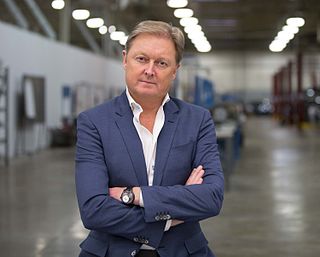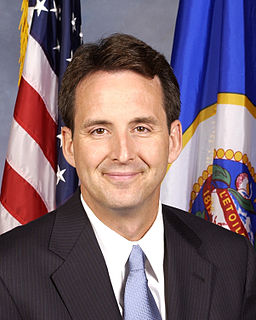A Quote by Naomi Klein
In a marketplace where it's so easy to produce products, where your competitors can essentially match you on the product itself, you need to have something else. You need to have an added value, and that added value is the identity, the idea behind your brand.
Related Quotes
It turns out a VAT - a value-added tax - is a very easy tax to collect and a very hard tax to evade. It's a really good idea. It was invented about 60 years ago in France, of course. Because they're so good at taxing. They had a business tax that was easy to evade, and the head of the French IRS invented this value-added tax, which is very hard to evade.
The Value-Added Tax, a sales tax that applies at every level of business transactions, is an easy tax for governments to collect, and a hard tax to evade. So it makes the job of raising revenue easier. The revenues from the VAT can then be used to lower taxes on income and saving and investment. The Value-Added tax doesn't penalize work or saving; it's a tax on buying stuff.
Your business should be defined, not in terms of the product or service you offer, but in terms of what customer need your product or service fulfills. While products come and go, basic needs and customer groups stay around, i.e., the need for communication, the need for transportation, etc. What market need do you supply?
Shifting Philip Morris to the new a non-risk products doesn't mean that I will give market share to my competitors free of charge. In the markets where we are not present with IQOS yet or the other reduced-risk products, you still need to defend your share of the market. They still represent the bulk of our income, and so far they have financed the billions of dollars we have put behind these new products. But once we go national in a market, and absent capacity constraints, then you shift your resources and your focus to these new products.
The marketplace measurement in politics is something called an election. It's a pretty good barometer - it's transparent, it's numerical, it's objective. It gives you a pretty good measure of what your customers think of you. And in 2006 and 2008, the marketplace was telling the Republicans, We prefer the products and services of your competitors. And so when you're losing market share, you step back and say, What can we do differently?
I believe a great company, whether improving a sector or creating a new one, needs to have an excellent product or service at its core; needs strong management to execute the plan and a good brand to give it the edge over its competitors. Providing quality service, combined with value for money and in an innovative way ensures you offer real value - and finally to be responsible to society and the planet.































